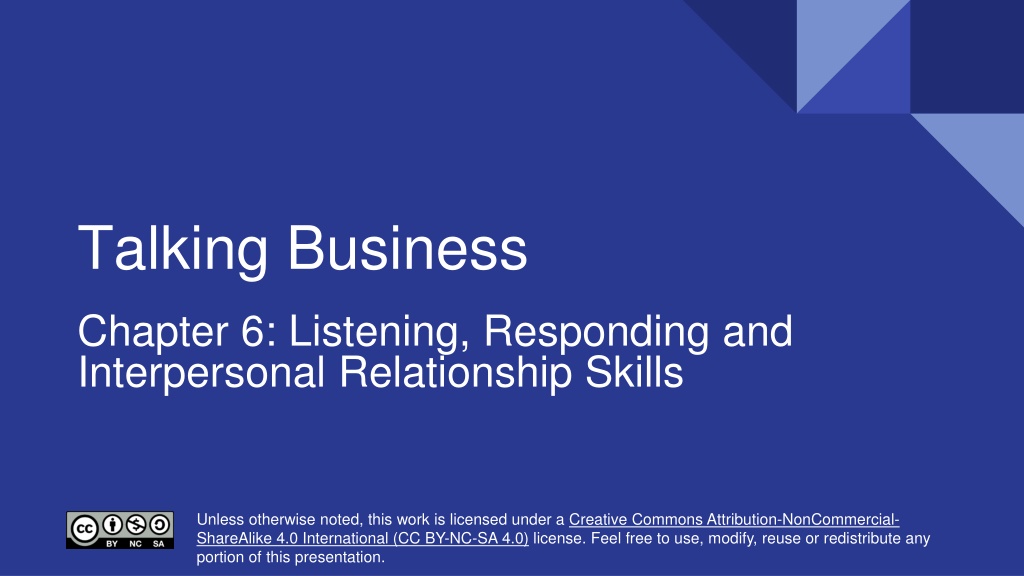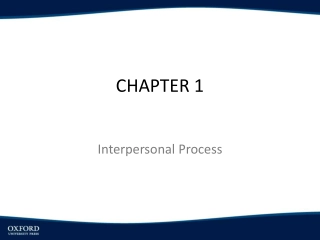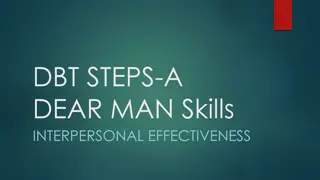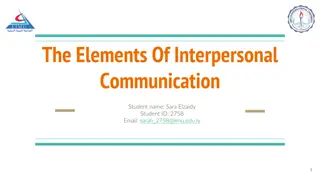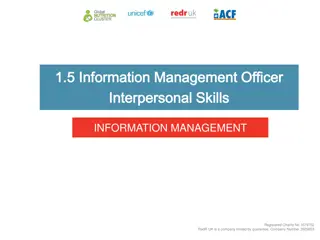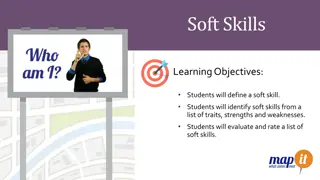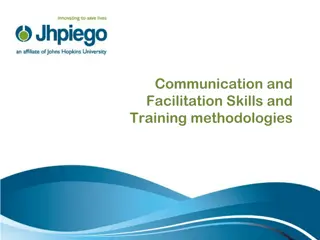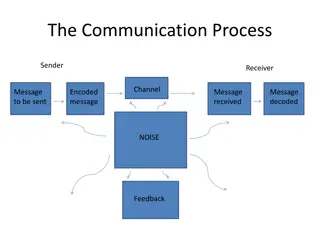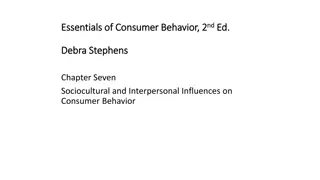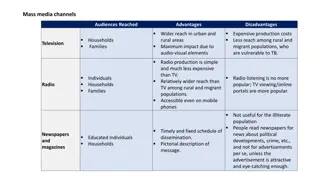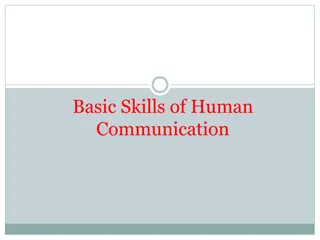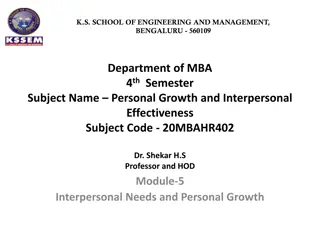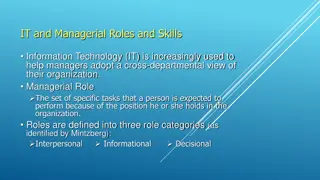Enhancing Interpersonal Communication Skills
Explore the dynamics of interpersonal communication in this chapter, covering topics such as social penetration theory, self-disclosure principles, intrapersonal communication, and self-concept understanding. Learn how to improve communication effectiveness and relationships through active listening and responding.
- Interpersonal Communication
- Social Penetration Theory
- Self-Disclosure
- Intrapersonal Communication
- Communication Skills
Download Presentation

Please find below an Image/Link to download the presentation.
The content on the website is provided AS IS for your information and personal use only. It may not be sold, licensed, or shared on other websites without obtaining consent from the author. Download presentation by click this link. If you encounter any issues during the download, it is possible that the publisher has removed the file from their server.
E N D
Presentation Transcript
Talking Business Chapter 6: Listening, Responding and Interpersonal Relationship Skills Unless otherwise noted, this work is licensed under a Creative Commons Attribution-NonCommercial- ShareAlike 4.0 International (CC BY-NC-SA 4.0) license. Feel free to use, modify, reuse or redistribute any portion of this presentation.
Learning Outcomes At the end of this chapter, learners will be able to: Define intrapersonal and interpersonal communication. Give examples of interpersonal needs in the communication process. Discuss social penetration theory and self-disclosure and its principles. List five steps in any conversation. Explain the importance of being an active listener.
6.1 Interpersonal Communication Interpersonal Communication is communication between two or more people. Informal, such as a conversation in a checkout line Formal, such as in a job interview or a business presentation Photo by Malachi Witt Pixabay License
6.1 Interpersonal Communication Ways to make communication more effective: 1. Social Penetration Theory According to the social penetration theory, people go from superficial to intimate conversations as trust develops through repeated, positive interactions. Figure 6.1. Layers of disclosure in interpersonal communication.
6.1 Interpersonal Communication 2. Principles of Self-Disclosure Self-disclosure is a process by which you intentionally communicate information to others, but can involve unintentional slips that may reveal more than you planned. 3. Interpersonal Relationships Interpersonal relationships are the interactions between people the bonds, connections or associations we have with others whether they be rather fleeting or very intimate.
6.2 What is Intrapersonal Communication? What is intrapersonal communication? Intrapersonal communication can be defined as communication with oneself, and that may include self- talk, acts of imagination and visualization, and even recall and memory. Photo by Igor Link, Pixabay License
6.3 Self-Concept Understanding that our self-concept, or the way we define ourselves, is often based on our actions Just as the communication process is dynamic, you too are a dynamic system. Photo by Simon Berger, Pixabay License
6.3 Self-Concept Self-concept is what we perceive ourselves to be, (McLean, 2005) and involves aspects of image and esteem. Self-reflection is a trait that allows us to adapt and change to our context or environment, to accept or reject messages, to examine our concept of ourselves and to choose to improve (or not). Internal monologue refers to the self-talk of intrapersonal communication.
6.4 Rituals of Conversation Initiation Conversation as a Ritual Preview 1. Initiation 2. Preview 3. Talking Point(s) 4. Feedback 5. Closing Talking point(s) Feedback Closing
6.5 Listening for Understanding Communication involves the sharing and understanding of meaning Pay attention to both the actual words and other clues to meaning Look for opportunities for clarification and feedback Photo by Gerd Altmann, Pixabay License
6.5 Listening for Understanding Active Listening People communicate with words, expressions, and even in silence, and your attention to all of these factors will make you a better communicator. Maintain eye contact with the speaker Don t interrupt and don t multitask Focus your attention on the message rather than your own internal monologue Restate the message in your own words and ask if you understood correctly Ask clarifying questions to communicate interest and gain insight
6.5 Listening for Understanding When the Going Gets Tough Here are some strategies that may be helpful: Set aside a special time Don t interrupt Be nonjudgmental Be accepting Take turns Acknowledge Understand Keep your cool mutual respect and understanding Photo by Werner Heiber, Pixabay License
Reflection Activity Returning to Dhavit s interview process, what types of questions would you ask potential candidates about their interpersonal and conflict management communication skills related to the busy role of Library Coordinator? If you were applying for this role, how would you prepare?
